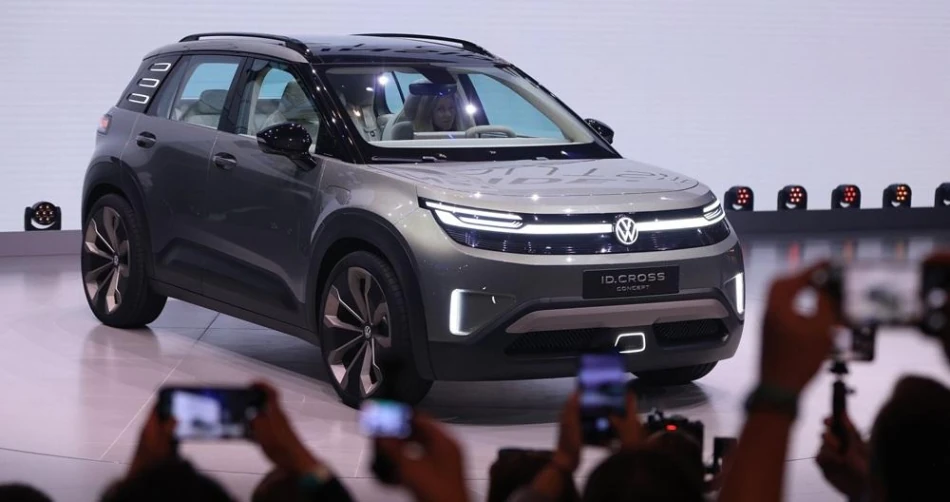
Volkswagen Unveils Compact Electric Crossover 'ID.Cross' - Driving the Future of Sustainable Mobility
Volkswagen Bets Big on Budget EVs as European Auto Giant Fights Multi-Front Battle
Volkswagen unveiled its new ID.Cross compact SUV this weekend, pricing the electric vehicle between €28,000-30,000 ($32,780-35,121) as Europe's largest automaker scrambles to defend market share against cheaper Chinese rivals while navigating U.S. trade tensions and a massive cost-cutting program that will eliminate over 35,000 jobs.
The Affordability Play: Too Little, Too Late?
The ID.Cross, set to launch globally in summer 2026, represents Volkswagen's belated recognition that premium pricing strategies are failing in today's EV market. CEO Oliver Blume positioned the vehicle as part of a broader 60-model rollout planned for 2024-2025, specifically targeting "less wealthy customers" seeking electric alternatives.
This pricing strategy puts Volkswagen in direct competition with Chinese manufacturers like BYD and Geely, which have been undercutting European automakers by thousands of euros. However, the 2026 launch timeline raises questions about whether VW can move fast enough to capture market share before Chinese brands further entrench themselves in European markets.
A Perfect Storm of Challenges
Chinese Price Wars Bite Deep
Volkswagen's struggles in China—historically its most profitable market—reflect a broader European automotive crisis. Chinese EV manufacturers have triggered aggressive price competition that's squeezing margins across the industry. For VW, which generated roughly 40% of global sales from China in recent years, this represents an existential threat to its traditional business model.
U.S. Tariffs Target Premium Brands
American trade tensions have specifically hammered VW's luxury subsidiaries Audi and Porsche, which rely heavily on U.S. exports for profitability. These premium brands traditionally subsidized VW's mass-market operations, making the tariff impact particularly damaging to the group's overall financial health.
European Demand Stagnation
Weak domestic demand compounds VW's challenges. European consumers have shown reluctance to adopt EVs at projected rates, partly due to charging infrastructure concerns and economic uncertainty. This forces automakers like VW to compete more aggressively on price in a shrinking market.
Massive Restructuring Signals Deeper Problems
The planned elimination of 35,000+ jobs alongside "painful cuts" to German production capacity suggests VW's challenges extend beyond temporary market conditions. This represents one of the largest automotive restructuring programs in recent European history, comparable to General Motors' post-2008 crisis downsizing.
For investors, these cuts signal management's recognition that VW's cost structure remains fundamentally uncompetitive against Asian manufacturers. The company's German manufacturing base, with high labor costs and complex union agreements, faces particular pressure as the industry shifts toward simpler EV production models.
Market Implications and Strategic Outlook
VW's pivot toward affordable EVs mirrors similar strategies from Ford and General Motors, but arrives later than competitors' efforts. The ID.Cross launch timeline suggests the company is prioritizing engineering refinement over speed-to-market—a traditionally German approach that may prove costly in today's rapidly evolving EV landscape.
The success of this strategy will largely depend on whether European governments maintain EV purchase incentives and how quickly Chinese manufacturers can establish local production to circumvent potential EU tariffs. For VW, the ID.Cross represents not just a new model launch, but a test of whether traditional automakers can adapt quickly enough to survive the industry's most dramatic transformation in decades.
Most Viewed News

 Omar Rahman
Omar Rahman






